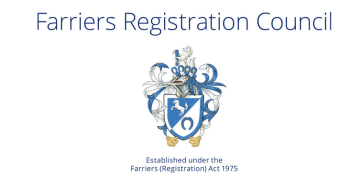You’ve been teaching for a while. You notice a gap in your knowledge, some unfamiliar content, pupils’ behaviour that isn’t solved by your ‘go to’ strategies.
You visit a fellow teacher’s classroom. What you see blows your mind. The teaching is seamless, they delve into a repertoire of techniques that are subtle and effective, they notice things that you don’t. They seem to read minds, to pre-empt pupils’ needs. It feels like witnessing a superpower in action.
This common observational exercise has provided you with a great model of expert teaching. But it has not helped you to improve your practice.
What superpowers look like
Teaching well may be a superpower, but no one is born with it. To reach this level of proficiency, teachers need opportunities to focus on building their own expertise. Just witnessing others’ superpowers can be motivational (or indeed dispiriting), but it misses the important step of explaining what it is that effective teachers do. A concrete understanding of these approaches is crucial to developing them in our own practice.
In Expert Teaching ̶ What is it and How Might We Develop It?, Peps Mccrea explains why teaching expertise is so powerful. He identifies four aspects of behaviour that are a result of teacher expertise.
- Expert teachers are better able to perceive their classroom with insight, using extensive knowledge to recognise cues and make inferences about learning and behaviour. They can recognise early signs that a pupil is losing focus and intervene pre-emptively.
- They make more accurate predictions about pupils’ reactions to teacher choices in the classroom. For example, a teacher might better judge the sequence of learning necessary to support their pupils.
- They are more effective at selecting strategies to respond to pupils’ needs. In other words, they better understand pupils’ prior knowledge, learning needs and personalities and have a bigger repertoire of strategies to draw on to support their progress.
- The cumulative effect of their extensive knowledge means expert teachers are better able to manage the complex and cognitively demanding environment of the classroom.
How superpowers are developed
Watching others wield teaching superpowers can only take you so far. Because it is these expert teachers’ extensive knowledge that guides their behaviours and decision making, the only way to truly emulate them is to build your own extensive knowledge and effective practices. Classroom experience is only part of that, and alone leaves teachers to a time-consuming process of trial and error.
Instead, we know that teaching superpowers stem from expertise built on four domains of knowledge:
- Subject knowledge, including approaches to sequencing, learning and overcoming barriers pupils face.
- Knowledge of the pupils themselves, including their prior learning and attainment, their motivations, their influences and how these change in different contexts.
- Pedagogical knowledge, including a secure understanding of how learning happens and how instruction can increase opportunities for learning.
- Self-knowledge, including understanding your own strengths, areas for improvement and how to change and improve these.
In addition, Berliner found that teacher expertise is highly context specific and doesn’t easily transfer between classrooms, year groups or subjects. That’s why a teacher with superpowers in one school can feel like a novice again in another. Every change of pupils, curriculum or context requires teachers to adapt and acquire new knowledge, so all teachers need to continually develop their expertise throughout their careers.
It turns out that teaching superpowers are in fact a finely honed and contextually specific expertise, that is developed continuously across a range of contexts.
Let’s begin again
You’ve been teaching for a while. You notice a gap.
You visit a fellow teacher’s classroom. What you see blows your mind.
Together, you develop a strategy to help you consider what knowledge you need to build in your current context. You engage in relevant professional development to develop that knowledge, engage in practice and receive feedback.
Before long, you are providing a model of expert teaching for others. You have developed great powers that enhance your classroom, and with them a sense of great responsibility that enhances the profession.













Your thoughts